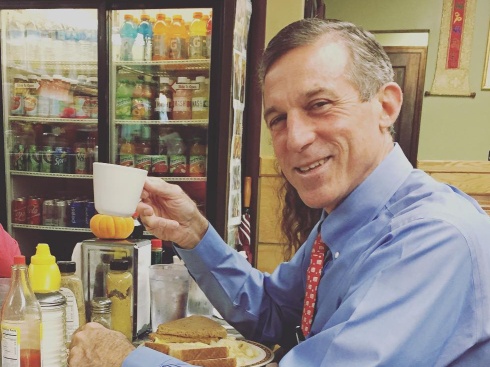“Shared Sacrifice” as defined by the internet
Shared Sacrifice
Everyone give up the goods so me and my friends can have more. (Typically spoken by elected officials or upper management)
http://www.urbandictionary.com/define.php?term=Shared%20Sacrifice



Estate tax repeal. Delivered! Let the shared sacrifice continue..
After reviewing the press advisory (below) from Delaware’s House and Senate leadership regarding the unanticipated postponement of the Joint Finance Committee meetings I felt compelled to analyze what message was intended by this action. In light of the fact that I consider most of the DEFAC revenue subcommittee report as a regurgitation of economic ideas and a further redistribution of wealth to corporations at the expense of the needy and literally taken from the ALEC playbook. This report based almost solely on the concerns and wants of the corporate world has been literally transposed in to the current budget proposals. A few examples are found on these pages of the report.
Pg. 51) Personal Income Tax: “higher tax brackets were considered as alternative means to increase elasticity, but they were not included as recommendations given that they would increase Delaware’s reliance on an even narrower portion of volatile revenues and raise questions relating to economic competitiveness”
Pg. 44) Estate Tax repeal: “The Council chiefly discussed this revenue source as it relates to wealthy households’ incentives to retain Delaware residency”
Pg. 34) Bank Franchise Tax: “Delaware banks are exempt from Gross Receipts and Corporate Income Taxes. The Council assessed the BFT with great care, given the potential competitive impacts of any changes since the BFT is credited with preserving jobs and enticing banks to locate in Delaware”.
Review the entire report and you will see how many times the unproven and false mantra of “businesses and the wealthy will flee Delaware are threatened to preserve the corporate welfare state status enjoyed by Delaware. I have sent the following email to all of my legislative colleagues.
Dear colleagues,
The following message suggests that leadership is finally considering the reality that revenue has to be raised to pay for necessary services that benefit the economy and the most vulnerable people in Delaware. Mu optimism fades and my enthusiasm wanes when the announcement refers to the DEFAC revenue subcommittee report as a recommendation for moving forward. This report generated by and on behalf of corporate interests by the Chamber of Commerce, Business Roundtable and more than a few corporate attuned legislators represents the exact attitudes and plans that have gotten our economy into this mess. Trickle-down economics is a phrase we have all grown familiar with over the years and nothing about any incarnation of it can be honestly viewed as other than a regressive, pro-corporate, pro-affluence agenda that will diminish necessary services for the most needy. I raised objections to the attitudes and harmful economics embodied in this plan in 2015 when it first surfaced and hope all of my colleagues will see the potential for economic and social injustices that will result from embracing it.
Representative John Kowalko
———- Forwarded message ———-
Delaware General Assembly
State of Delaware
For Immediate Release: Contact: Drew Volturo
May 31, 2017 Work: (302) 744-4001
Contact: Jesse Chadderdon
Work: (302) 744-4282
Legislative Leaders Issue Statement on Budget Process
Joint Finance Committee to cancel Thursday session; Legislative leaders
to meet to discuss revenue measures
DOVER – House Speaker Pete Schwartzkopf and Senate President Pro Tempore David McBride issued the following joint statement regarding Joint Finance Committee:
“Legislative leaders have instructed the Joint Finance Committee to cancel its meetings for the remainder of the week to allow the leaders of all four caucuses to meet and continue discussions regarding raising additional revenue.
“We understand that JFC already has completed a first round of budget cuts, which drew on Governor Carney’s recommendations. Yesterday, the committee began a second round of deep cuts that could have serious long-term consequences for Delawareans. These include slashed education and public health programs – programs that provide the stability and foundation for middle class families to thrive and help grow Delaware’s economy.
“We heard loud and clear from legislators, community stakeholders and affected residents about these potential cuts and we understand those sentiments. For that reason, we have asked JFC to take a step back and give legislative leaders the opportunity to meet and see if there is room for compromise to raise additional revenue so that we can balance any cuts we might have to make to the budget.
“This is a simple mathematical issue: Solving our budget issues requires both parties to work together and reach consensus. Budget issues are not partisan, and neither are the solutions. We must use this opportunity to fix the structural problems with our budget so we have sustainable revenue to maintain important services to all residents. We must fix those structural issues that the DEFAC revenue subcommittee identified so we don’t find ourselves in a similar position in future years.
“We are optimistic that both sides can work together to produce a responsible, balanced budget that protects services for Delawareans and puts us in a better position for the future.”
Questions for the experts here:
1. Does the Controller General’s office, or OMB or the Finance dept., “score” proposals for increased personal income tax rates to determine the anticipated amount of revenue the new brackets might take in? Are those scoring analyses available to the public? Do they now exist for Kowalko’s and Carney’s proposals?
2. Given the fact that any new increases in personal income tax rates or brackets – whether Carney’s, Kowalko’s, or some compromise – cannot constitutionally take effect until January 1, 2O18, – halfway through the 2O18 fiscal year – can any of the proposals close the rest of the $2OO million part of the budget gap assigned to new tax revenues for the 2O18 fiscal year?